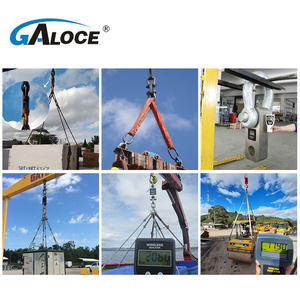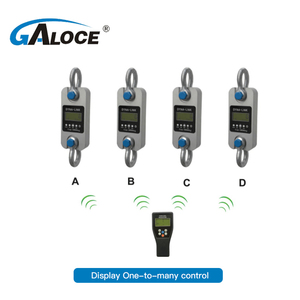
All categories
Featured selections
Trade Assurance
Buyer Central
Help Center
Get the app
Become a supplier

(1899 products available)


















































In the realm of mechanical testing and measurement, force measuring instruments play a crucial role. These sophisticated devices are designed to quantify the amount of force exerted on an object, providing essential data for various applications across industries. Whether used in manufacturing, research laboratories, or quality control processes, digital dynamometers deliver precise and reliable measurements that are vital for ensuring product integrity and safety. With advancements in technology, these instruments have evolved to offer enhanced features and capabilities, making them indispensable tools in modern engineering and testing environments.
The range of digital dynamometers available today is extensive, catering to a diverse array of testing needs. Common types include load cells, dynamometers, and force gauges. Load cells are widely used in industrial applications due to their accuracy and durability, often employed in weighing systems and material testing machines. Dynamometers are specifically designed to measure torque and rotational forces, making them ideal for automotive and machinery testing. Force gauges, on the other hand, are versatile handheld devices used for both tension and compression force measurement in various fields, including packaging and electronics. Each type of digital dynamometers is engineered to meet specific requirements, ensuring optimal performance for its intended use.
digital dynamometers offer a wide range of functionalities that make them essential in testing environments. They provide precise measurements of force, which are critical for assessing the mechanical properties of materials and components. Key features of these instruments include digital displays for easy reading, data logging capabilities for recording measurements over time, and user-friendly interfaces that simplify operation. Some advanced models are equipped with wireless connectivity, allowing for remote monitoring and data transfer. The robust construction of many digital dynamometers ensures durability and reliability even in challenging industrial settings. Additionally, they often come with interchangeable attachments to accommodate various testing scenarios, enhancing their versatility.
The construction of digital dynamometers involves the use of high-quality materials and components to ensure accuracy and longevity. Load cells, for example, are typically made from stainless steel or aluminum, which provides strength and resistance to corrosion. Strain gauges, a critical component in many force measuring devices, are made from thin metallic foil that deforms under load, allowing for precise measurement of force. The electronic components, including sensors and microprocessors, are selected for their reliability and precision, ensuring that digital dynamometers deliver consistent and accurate results. The choice of materials and components directly impacts the performance and durability of these instruments, making them suitable for a wide range of applications.
To maximize the benefits of digital dynamometers , it is essential to understand their operation and limitations. Before use, ensure that the instrument is calibrated correctly to guarantee accurate measurements. Select the appropriate type of force measuring device based on the specific testing requirements, considering factors such as the range of force to be measured and the testing environment. When using digital dynamometers , follow the manufacturer's guidelines for setup and operation to prevent damage and ensure safety. Regular maintenance, including cleaning and recalibration, is crucial to maintaining the instrument's accuracy and longevity. In industrial settings, integrating these devices into automated systems can enhance efficiency and data accuracy, providing valuable insights into the performance of materials and products.
When selecting digital dynamometers , understanding the specific requirements of your application is paramount. Considerations such as the range of force to be measured, the testing environment, and the type of force—tension, compression, or torque—are crucial. Load cells, dynamometers, and force gauges each offer unique benefits depending on their design and intended use. For instance, load cells are ideal for applications needing high precision and durability, whereas dynamometers are better suited for measuring rotational forces. The choice of digital dynamometers should align with your testing objectives to ensure optimal performance.
Another important aspect to consider is the instrument's accuracy and resolution. Different digital dynamometers models offer varying degrees of precision, which can significantly impact the reliability of your measurements. High-resolution models are essential for applications requiring detailed analysis, such as research and development, while standard models may suffice for general quality control tasks. Additionally, the calibration of digital dynamometers is a critical factor in maintaining measurement accuracy, so ensuring regular calibration and maintenance is key.
Common types of digital dynamometers include load cells, dynamometers, and force gauges. Load cells are used for precision measurement in weighing systems and material testing machines. Dynamometers measure torque and rotational forces, ideal for automotive testing. Force gauges are versatile devices for tension and compression measurement in various industries.
To ensure the accuracy of digital dynamometers , regular calibration is essential. Follow the manufacturer's guidelines for calibration intervals and procedures. Additionally, selecting an instrument with high resolution and precision capabilities can enhance measurement accuracy. Proper handling and maintenance also contribute to consistent performance.
Yes, many digital dynamometers are designed to withstand extreme environments. Instruments made from robust materials such as stainless steel or aluminum offer resistance to corrosion and can function reliably in challenging industrial settings. It's important to choose a model that matches the specific environmental conditions of your application.
Digital digital dynamometers offer several advantages over analog models. They provide easy-to-read displays, data logging capabilities, and often feature user-friendly interfaces. Advanced digital models may also offer wireless connectivity for remote monitoring and data transfer, enhancing convenience and efficiency in testing processes.
Calibration is crucial for maintaining the accuracy and reliability of digital dynamometers . Regular calibration ensures that the instrument provides precise measurements, which are essential for assessing the mechanical properties of materials and components. It is important to adhere to recommended calibration schedules and procedures to maintain the instrument's performance over time.